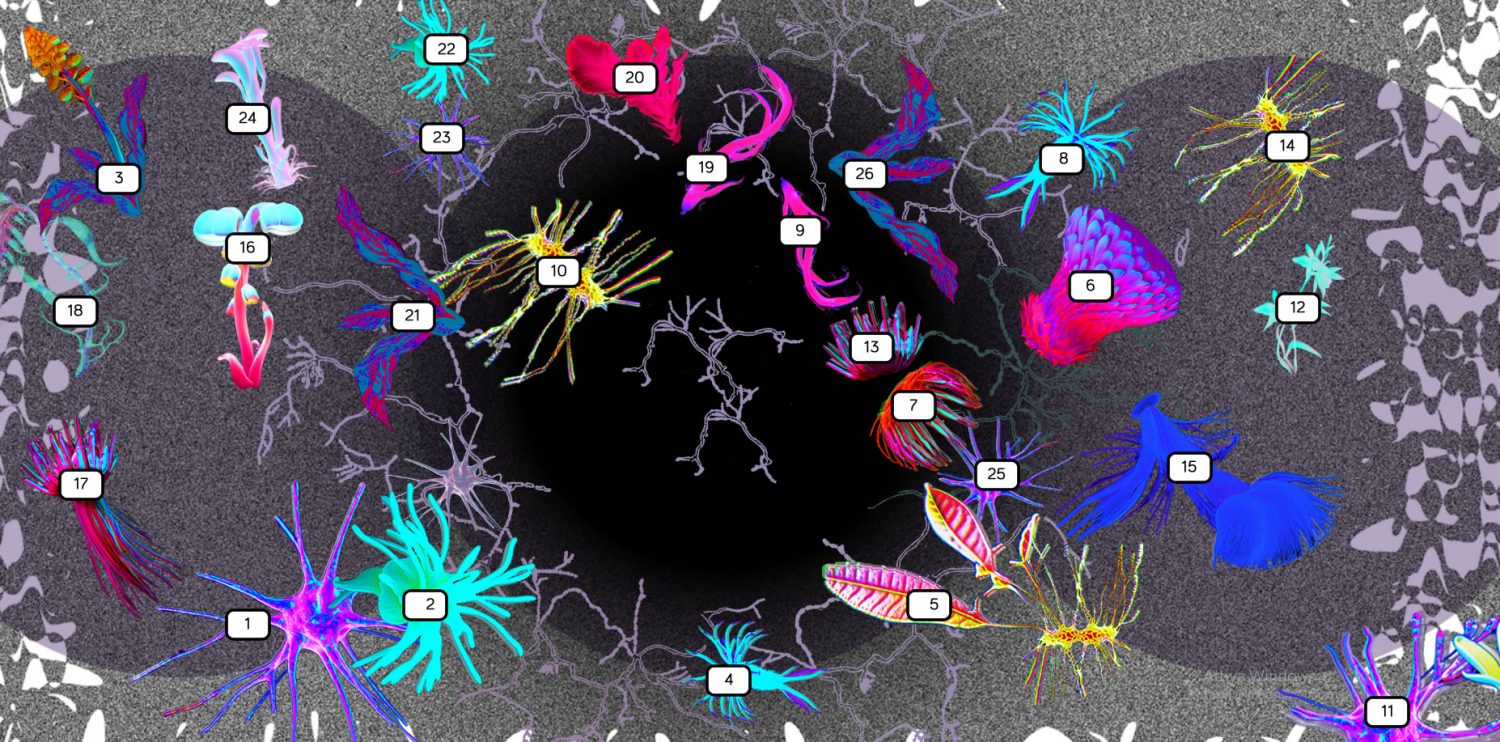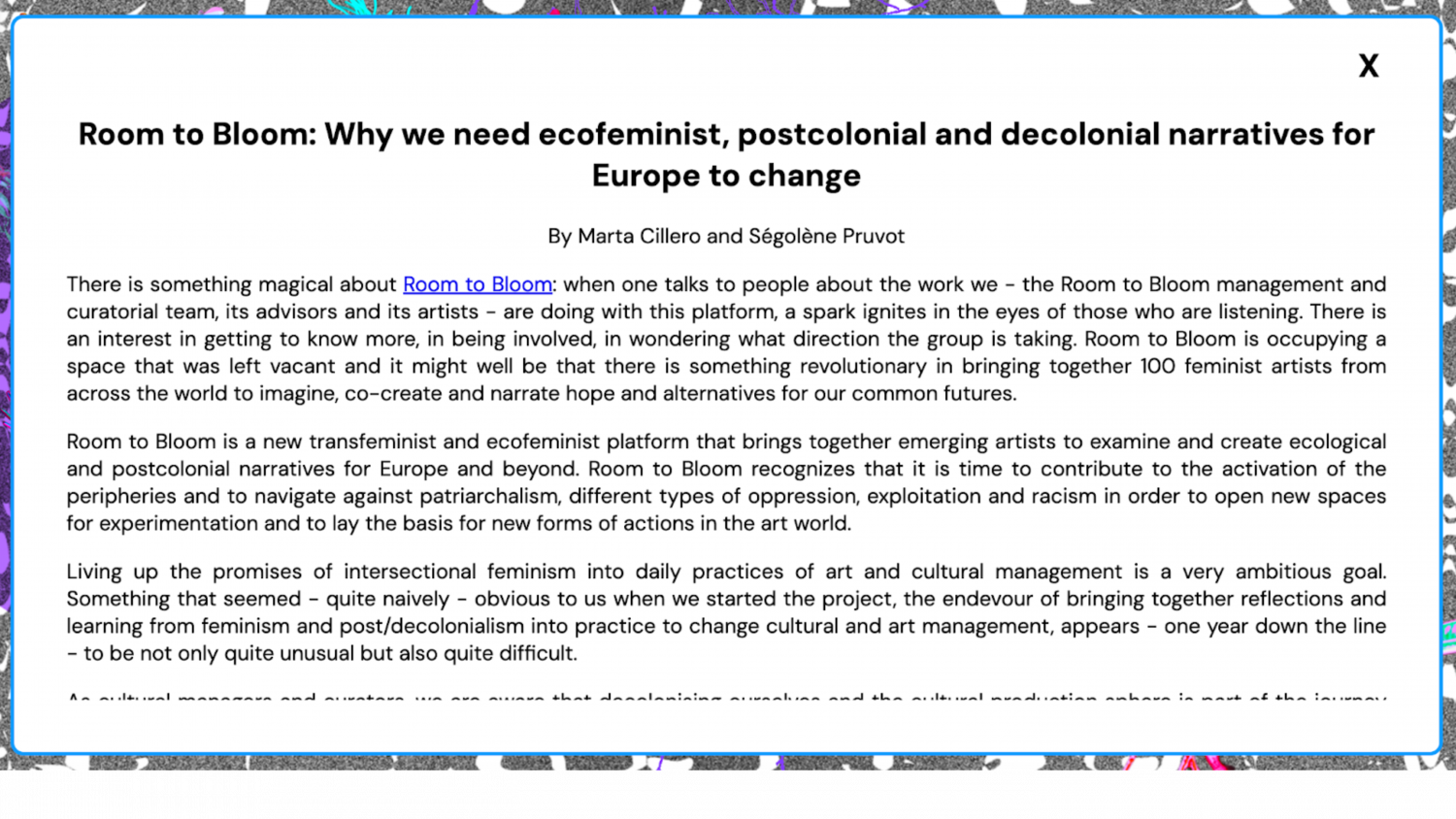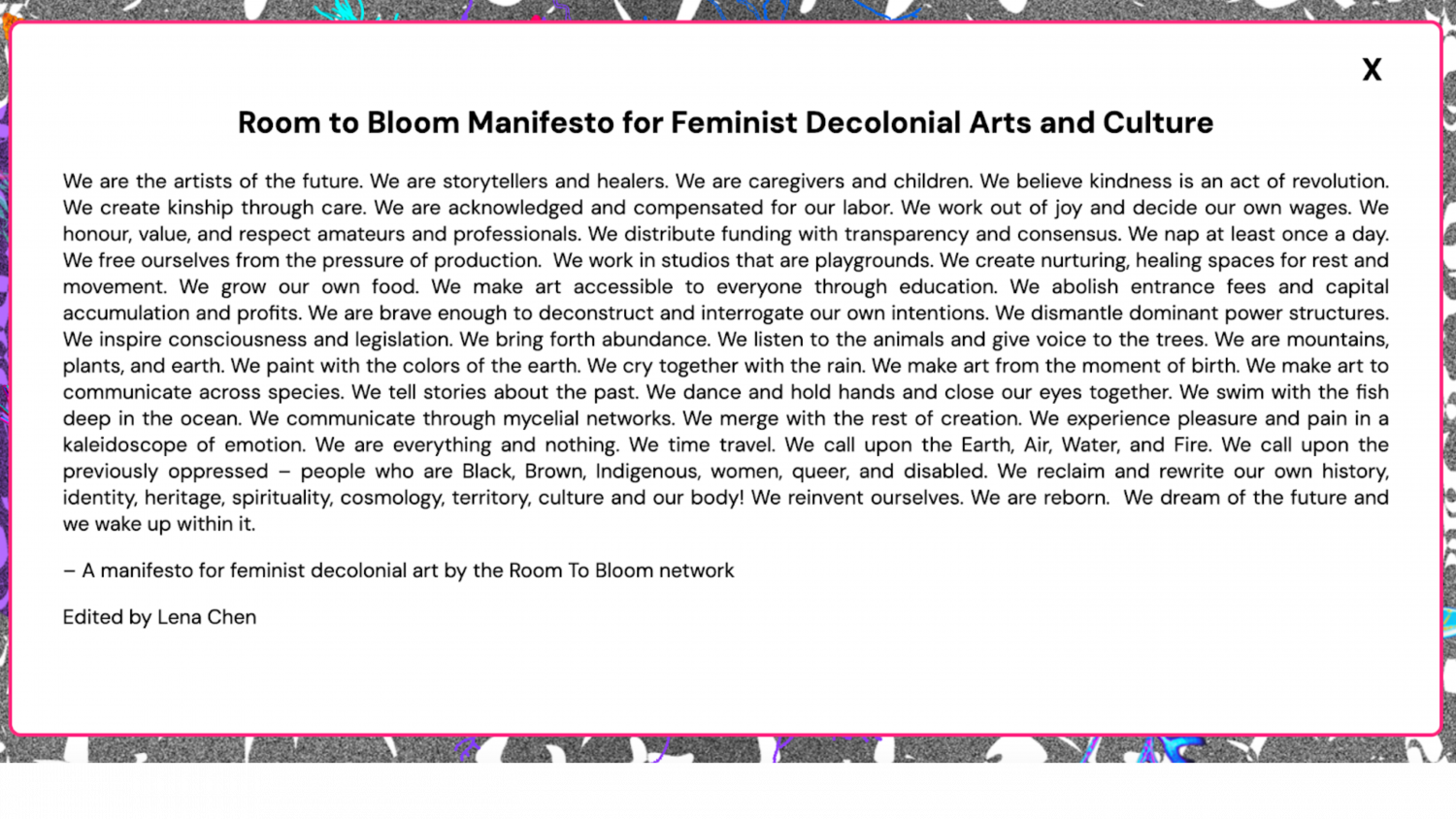An unhierarchical mesh underpinning nature.
An ecosystem of shared economy. A ‘Wood Wide Web’ using electrical impulses to form natures invisible communication tool. Only in recent years has the mycelial network began to be popularly known, quickly growing in inspiration in the art world, a real yet mythical example of the systems we ecofeminists desire.


The mycelium holds place in the ethos of Room to Bloom, an ecofeminist and decolonial network of transnational artists and art organizations that over the past three years has carried out trainings, exhibitions and public events across the world to create platforms for alternative voices, imaginaries, mutual learning and co-creation.

The digital catalogue weaves the mycelium and Room to Bloom project together. Each myco-heterotrophic graphic presents an element of the project, a plant which, like our community, needs mycelial connections to grow. Scan the QR code for your own virtual exploration of select seeds that Room to Bloom has planted, with additional references of our inspirations and guidance.
Works best with a computer & headphones.
Room to Bloom brings together feminist artists with a migration background who create ecological and postcolonial narratives of Europe. By associating artists and creators who – too often – occupy a peripheral place in the world of arts and places who are considered to be geographically peripheral (Sicily, Ukraine, Poland, Greece), Room to Bloom aims at building a discourse on European culture that is fully built on the experience and knowledge of the periphery and to bring it back to the centre.
The project partnership involves arts institutions and partners from France (Alternatives Européennes), Sweden (Museums of Cultures of the World, Gothenburg), Italy (Studio Rizoma) and Germany/Greece (AthenSyn). It includes informal partners from Ukraine, Poland and beyond.